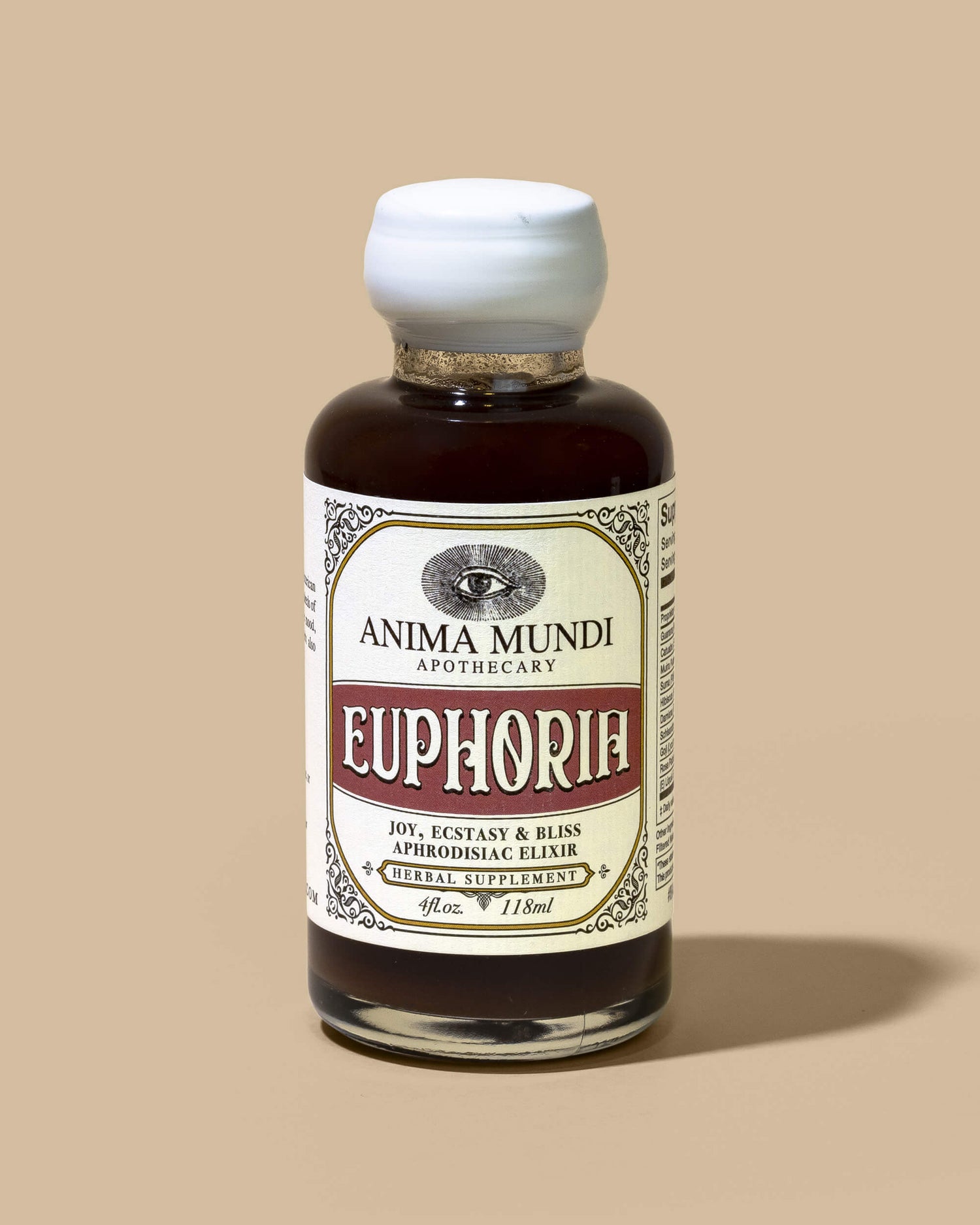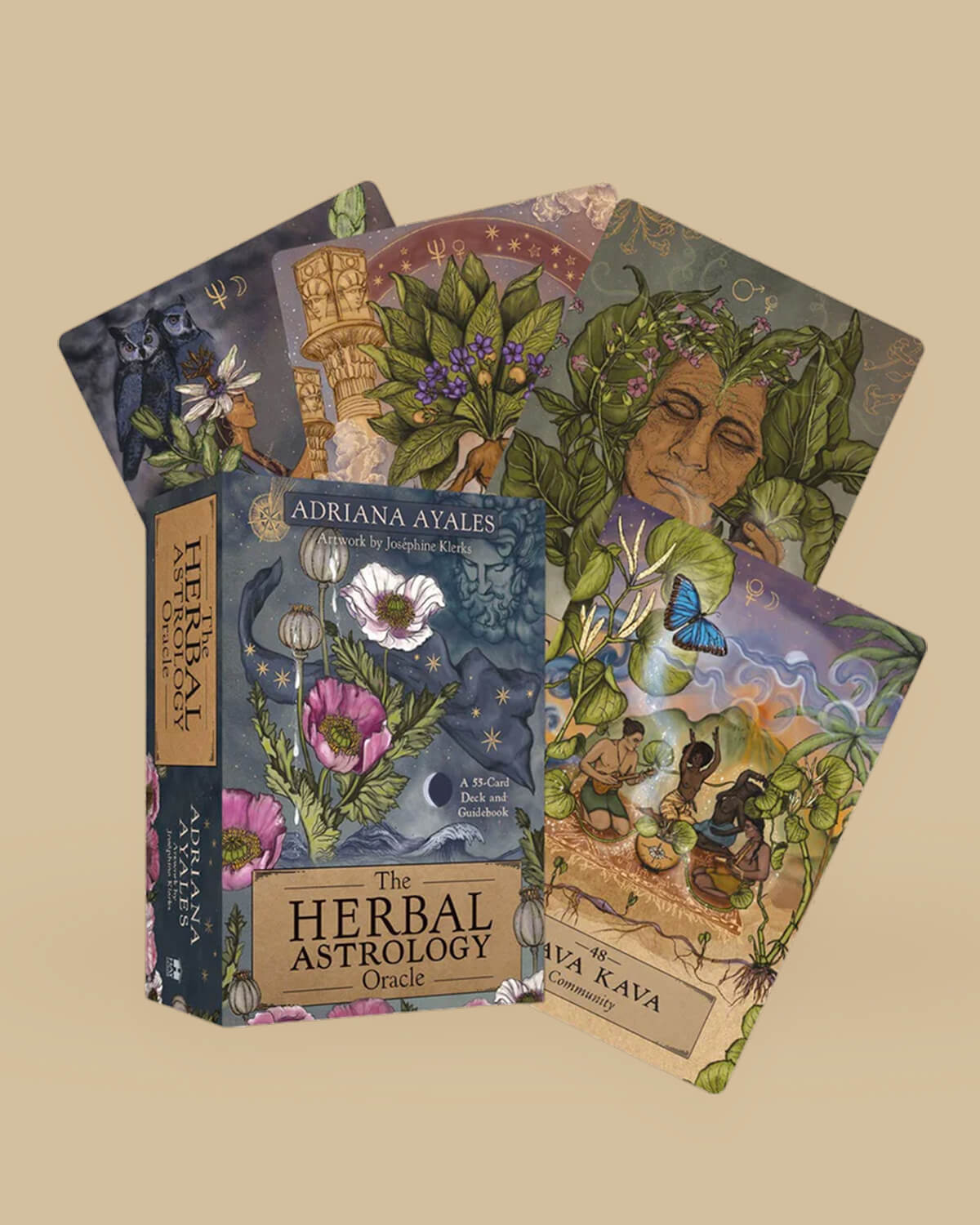Each year in April, many of us will feel the looming deadlines of tax season compounded with the anxiety of mounting bills, the gnawing fear of not having enough, and a host of other real-world worries around money. Regrettably, even for the most zen among us, financial stress can seep into every corner of our lives. But beneath the surface of spreadsheets and budgets lies a deeper, psycho-spiritual terrain: ancestral memories of scarcity, worthiness wounds, and survival patterns wired into our nervous systems. When money anxiety flares, we could be re-triggering primal fears etched into our collective psyche—and, now more than ever, this is especially true for those of us who are members of marginalized communities.
Have you ever considered that your financial worries might be more than just balancing numbers and adding line items? What are the psycho-spiritual roots of money stress, and can herbal allies, rituals, and zero-cost self-sufficient practices help heal your deeper wounds? Which ancestral springtime rites for April renewal are most supportive for these transitional times? Could community bartering and mindset shifts help you move from fear to abundance? Imagine what your spring season might look like if you focused on rooting yourself to build resilience for yourself and future generations looking to you as an essential cycle-breaker.
Financial anxiety often masquerades as a practical problem: insufficient dollars to cover expenses. But at its core, money stress taps into three interwoven psycho-spiritual threads:
Scarcity Consciousness
When resources ran low, our ancestors faced real, immediate threats to their survival. A failed harvest meant hunger, vulnerability, and possibly death. No seeds for the next season meant no future for the family or community. Over generations, these high-stakes experiences shaped the brain’s survival wiring. Neural pathways that equated scarcity with danger developed, embedding a deep-rooted vigilance in our nervous systems. This wiring helped our ancestors stay alive by keeping them hyper-aware of any signs of lack.
Today, even though the threats we face are rarely about physical survival, our brains still respond to modern forms of scarcity—like an empty bank account, job insecurity, or social rejection—with the same primal alarm system. The fight-or-flight response kicks in in these situations, flooding the body with stress hormones and narrowing our thinking. We might spiral into fear, hoard resources, or make reactive choices. Scarcity consciousness is both a psychological mindset and a physiological pattern, which evolved for protection but can keep us stuck in fear, even when the actual danger has passed.
Worthiness Wounds
Many societies—from the pharaohs of Ancient Egypt and the city‐states of Mesopotamia to Imperial China’s Mandate of Heaven, the maize cults of the Aztec Empire, Hindu devotion to Lakshmi, and Northern Europe’s Protestant work ethic—have historically read material prosperity as proof of divine favor or moral merit.
Pharaohs built temples and managed Nile floods to sustain maat, while Mesopotamian kings claimed crop surpluses as signs of their gods’ pleasure. In China, a dynasty’s good harvests and social harmony were seen as Heaven’s endorsement, just as Aztec rulers offered maize rituals to Tonacatecuhtli for fertile fields. Hindu texts teach that wealth (artha) arises from righteous living (dharma) and accumulated merit (puṇya). Each of these cultures has woven abundance into its spiritual and ethical fabric.
So, when you feel unworthy of wealth or success, you’re inheriting these deep‑rooted stories of merit and divine blessing. That inner voice whispering, “You’re not enough” or “Who are you to receive this?” echoes ancestral worthiness wounds. True healing comes from recognizing your intrinsic value beyond inherited myths and external markers and choosing to rewrite the narrative so that abundance feels not like a privilege to earn but a birthright to embrace.
Epigenetic Memory + Collective Stories
Beyond personal experience, trauma and scarcity can imprint on our DNA across generations. Family stories of poverty, war, or displacement live in our cells, influencing how we perceive and manage money (and so much more). Through epigenetic mechanisms like DNA methylation and histone modification, extreme stressors leave chemical tags on genes that regulate our stress response and reward pathways.
Landmark studies of Dutch Hunger Winter survivors and Holocaust descendants reveal that these marks can alter cortisol sensitivity and metabolic set points, subtly steering how we perceive risk, cling to resources, or even feel safe spending money. When we ignore these psycho-spiritual roots, we only treat the surface symptoms (late fees, sleepless nights) without healing the deeper source. True generational healing invites us to trace these cellular blueprints to their roots, honoring the psycho‑spiritual stories carried in our bloodlines. By naming inherited scarcity narratives and worthiness wounds, we tap into our epigenetic plasticity, reclaiming agency over abundance and shifting from reactive survival to empowered choice.

Cultivating an Abundance Mindset with Herbs
Shifting from scarcity to abundance is rewiring neural pathways and tending to the heart. Herbs can gently support this inner alchemy. When scarcity alarms sound, our HPA axis (hypothalamic-pituitary-adrenal) floods us with cortisol and adrenaline, priming us for fight‑or‑flight. Chronic activation of this stress response can manifest as anxiety, insomnia, and burnout, keeping us locked in reactive patterns. But with gentle herbal support, we can soothe those alarms, cultivate inner balance, and gradually rewire our brains for safety and possibility.
Adaptogens and nervines are our first line of defense against HPA overdrive. Ashwagandha helps modulate cortisol rhythms and promotes restorative sleep. Reishi is nourishing for depleted energy reserves and can bring a sense of calm to the spirit, helping you stay grounded through deadlines and other stress-filled moments. Milky oats are known to offer a tender, nervine embrace that rebuilds resilience, and lemon balm supports lifted moods, tension-easing, and mental clarity. If you want a simple way to think of this, the category of herbs known as nervines signals to your nervous system that the day’s stresses can finally rest.
 When it’s time to tackle everything from spreadsheets to creative bursts, clean, sustained energy makes all the difference—and nature offers a powerful alternative to caffeine crashes. If happiness could be brewed, it might taste like our herbal “coffee,” a joyful blend of uplifting adaptogens and rich, earthy botanicals. This mood-boosting super-powder combines researched “happy herbs” like ashwagandha, rhodiola, mucuna, albizia, and St. John’s Wort to support emotional balance, calm, and clarity. These are paired with roasted dandelion, chicory, maca, lucuma, burdock, mesquite, and real organic vanilla, offering a grounding, aromatic flavor with notes that are roasted, malty, slightly sweet, and just a touch bitter. Beyond taste, each ingredient brings something special: dandelion and burdock support liver and blood sugar balance, chicory offers prebiotics and longevity benefits, and maca boosts sustained energy. Mesquite adds antioxidants, cinnamon soothes digestion, and vanilla may help calm the nervous system. This herbal brew is designed to elevate mood, nourish your system, and naturally help you stay focused and bright.
When it’s time to tackle everything from spreadsheets to creative bursts, clean, sustained energy makes all the difference—and nature offers a powerful alternative to caffeine crashes. If happiness could be brewed, it might taste like our herbal “coffee,” a joyful blend of uplifting adaptogens and rich, earthy botanicals. This mood-boosting super-powder combines researched “happy herbs” like ashwagandha, rhodiola, mucuna, albizia, and St. John’s Wort to support emotional balance, calm, and clarity. These are paired with roasted dandelion, chicory, maca, lucuma, burdock, mesquite, and real organic vanilla, offering a grounding, aromatic flavor with notes that are roasted, malty, slightly sweet, and just a touch bitter. Beyond taste, each ingredient brings something special: dandelion and burdock support liver and blood sugar balance, chicory offers prebiotics and longevity benefits, and maca boosts sustained energy. Mesquite adds antioxidants, cinnamon soothes digestion, and vanilla may help calm the nervous system. This herbal brew is designed to elevate mood, nourish your system, and naturally help you stay focused and bright.
True abundance also requires an open heart. Rose petals help soften shame and self‑judgment, inviting compassion and self‑worth. Holy basil (Tulsi) may clear mental fog, uplift the spirit, and foster gratitude. When you consciously weave botanical allies like these into your daily rituals, you honor both physiology and psyche, transforming scarcity stories into thriving possibilities. And since numbers don’t crunch themselves, here are some of the plant allies for clean energy, sharpened focus, heart opening, and support stress resilience from our apothecary.
 Empowerment often comes without a price tag. Ancestral grounding practices like earthing—walking barefoot on grass, soil, or sand—help stabilize your biofield and lower cortisol, fostering a deeper connection to the Earth. Foraging common herbs like dandelion, chickweed, and plantain taps into nature's free farm-armacy, while growing an herb garden with plants like basil, mint, and calendula in pots or windowsills offers fresh, low-cost remedies for mind-body-spirit nourishment.
Empowerment often comes without a price tag. Ancestral grounding practices like earthing—walking barefoot on grass, soil, or sand—help stabilize your biofield and lower cortisol, fostering a deeper connection to the Earth. Foraging common herbs like dandelion, chickweed, and plantain taps into nature's free farm-armacy, while growing an herb garden with plants like basil, mint, and calendula in pots or windowsills offers fresh, low-cost remedies for mind-body-spirit nourishment.
DIY herbal preparations, such as infusing olive oil with calendula for salves or making plant-based digestive bitters allow for simple, cost-effective kitchen witchery that enhances your wellness practice. Additionally, nature journaling and meditation outdoors can be grounding ways to release (financial) stress and gain clarity through mindful reflection. These practices remind us that true empowerment is found in simplicity.
Community Bartering + Reciprocity
Ancestral communities thrived through reciprocity—sharing seeds, labor, and resources to ensure collective well-being. Today, practices like time banking allow you to exchange skills—offering herbal consultations or gardening help in return for services like bookkeeping or childcare. Seed and herb swaps create opportunities to trade tinctures, seedlings, and remedies, while mutual aid circles foster community resilience by pooling small contributions to support members in need.
Generosity is a powerful energy. Gifting a handful of homegrown herbs or offering your time with no expectation of return mirrors Indigenous traditions where uncalculated giving invites abundance. Practicing this kind of open-hearted exchange strengthens community ties and aligns you with the natural flow of prosperity.
Spring, a season of renewal, offers potent rituals to align your financial intentions with nature’s rhythms. On the new moon, bury your goals alongside seeds like sunflowers or basil to symbolize growth. Smoke cleansing with sacred herbs helps release old money blocks, while water blessings with mint and rose invite financial flow.

De‑Stress, Recharge + Embrace Slow Living
Tax season can feel like an emotional marathon, with April 15th looming like a summit. Once the filing is done, it's common to experience a wave of exhaustion or overwhelm. Grounding practices can help you land softly and reclaim balance. Start with a calming herbal tea to relax and restore. Sip slowly throughout the day, repeating the affirmation: “I did my best; now I rest.”
Support your nervous system and physical recovery with an antioxidant-rich Blue Moon Bath. Grounding meals can also ease the transition. Choose root vegetables, broths, and whole grains, and consider a small dose of herbal bitters before eating to calm digestion and reconnect with your body’s rhythms.
After the digital deluge of tax prep and filing, carve out time for a screen-free hour (or two!). Use that space for gentle stretching, walking outside, or grounding barefoot. These simple rituals help re-integrate your mind and body and remind you that peace is available, even in busy seasons. As you shift into recovery, embrace slower living. Make time for an herbal afternoon pause with a nettle, lemon balm, and hibiscus brew. Even five minutes of quiet sipping and mindful breathing can restore clarity. Daily barefoot grounding—on grass, dirt, or even cool concrete—anchors your energy and reduces stress.
Community connection is also a powerful tonic. Consider joining or hosting a creative bartering circle to exchange herbs, crafts, or skills. These gatherings ease financial strain and foster joy and shared purpose. Finally, create a mindful money ritual each week: light a green candle, review your receipts with gratitude, and release what no longer serves you by safely burning or composting the list—reframe scarcity into sufficiency.

Planting Seeds for Lasting Abundance
This April, we invite you to remember that financial stress is rarely just about the math. It’s woven into a web of intergenerational stories, inherited survival instincts, and inner beliefs about worth. But healing is possible, and it doesn’t require a windfall. It begins with intention, presence, and the supportive plants that have always stood beside us.
So plant your seeds—literal and metaphorical. Let basil and borage bloom in your window. Let worthiness take root in your heart. Let abundance be defined not just by what fills your wallet but by what fills your cup: beauty, resilience, reciprocity, and joy.
You are not alone in this journey. You are part of a living lineage of healers, tenders, and visionaries. With each conscious breath and herbal ritual, you remember how to thrive, not just survive. May your garden of abundance flourish, rooted in ancestral wisdom, watered by community, and nourished by your own courageous heart.















